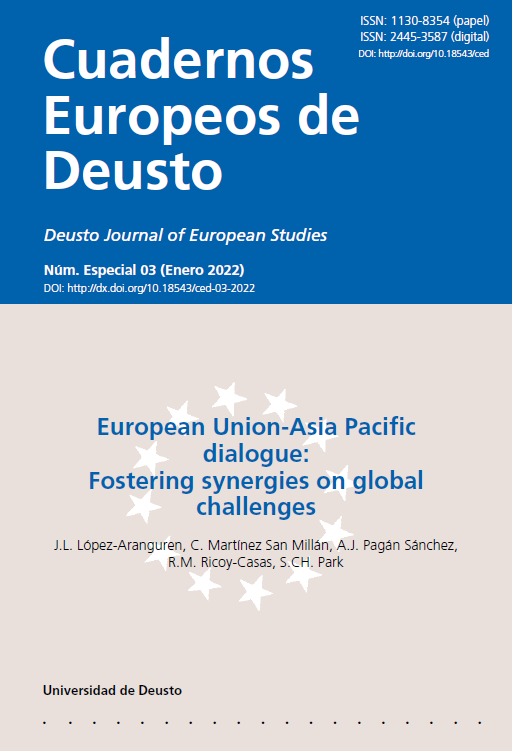The cooperation agreements within the belt and road initiative: The european common commercial policy at crossroads
Abstract
To carry out Chinese investments in third countries under the Belt and Road Initiative, the China is currently concluding numerous cooperation agreements called Memorandums of Understanding with its objective States, including European Union Member States. These Memorandums of Understanding are international agreements, but not international treaties as such, which implies that these documents may not lead to rights and obligations under International Law. However, every Memorandum of Understanding signed between China and a European Member States should be interpreted in accordance with European Law. The problem is that Member States are presumably violating different instruments of this legal framework as well as the European Union Common Commercial Policy, which is an exclusive competence of this international organization, if we interpret that these cooperation agreements are masking free trade agreements. This paper aims to analyse this possible interpretation and its consequences for the European Union, as these agreements entail a weakening of the European trade and investment power and put the European Common Commercial Policy at crossroads.
Received: 10 May 2021
Accepted: 05 November 2021
Downloads
The author grants to the Publisher the distribution, public communication, and reproduction rights of her/his work subject of publication in Deusto Journal of European Studies (DJES), whichever the media may be, including the permission to include it in the databases where this Journal is indexed and in the institutional repository of the Universidad de Deusto.
Upon its publication, the content of any Issue of Deusto Journal of European Studies (DJES) can be accessed, read, downloaded, copies, and distributed freely for non-commercial purposes and in accordance with any applicable copyright legislation.
The content of Deusto Journal of European Studies (DJES) can be subsequently published in other media or journals, as long as the author clearly indicates in the first footnote that the work was published in Deusto Journal of European Studies (DJES) for the first time, indicating the Issue number, year, pages, and DOI (if applicable). Any other use of its content in any medium or format, now known or developed in the future, requires prior written permission of the copyright holder.
The content of the work published in Deusto Journal of European Studies (DJES) is each author's sole responsibility. The authors assume the responsibility of obtaining all the necessary licenses for the reproduction in their manuscripts of any text, material or illustration coming from another author, institution or publication. The liabilities that may arise from complaints for publishing plagiarised articles are the sole responsibility of the author.


3.jpg)
2.jpg)
2.jpg)
2.jpg)
2.jpg)
2.jpg)







